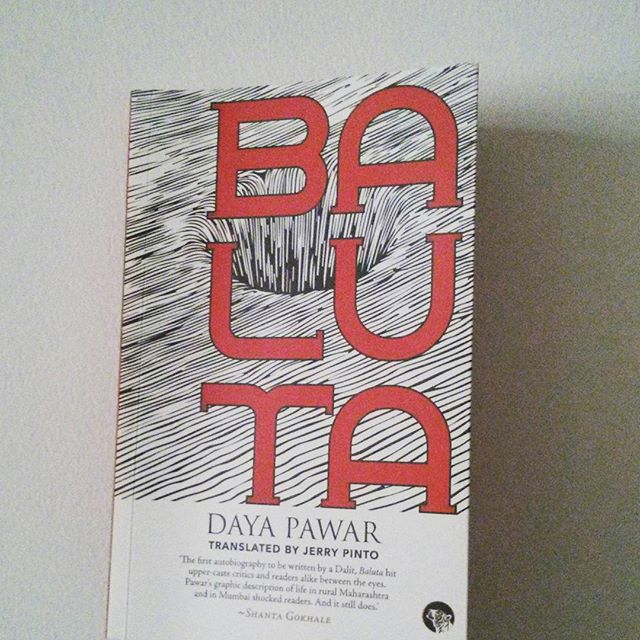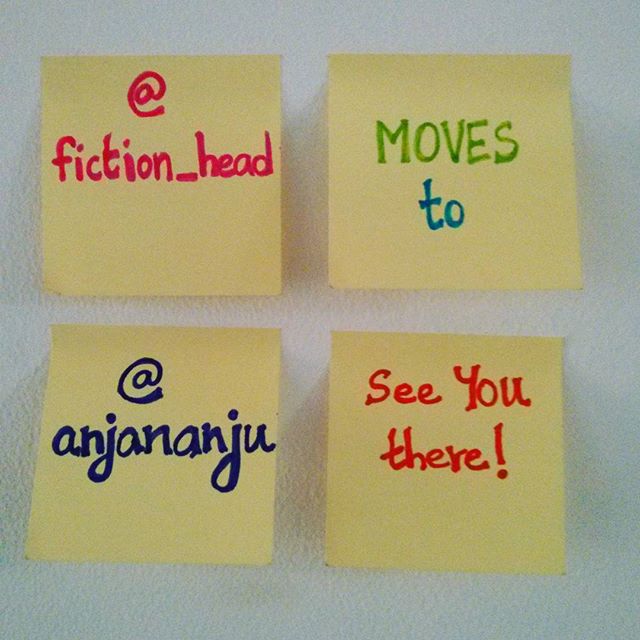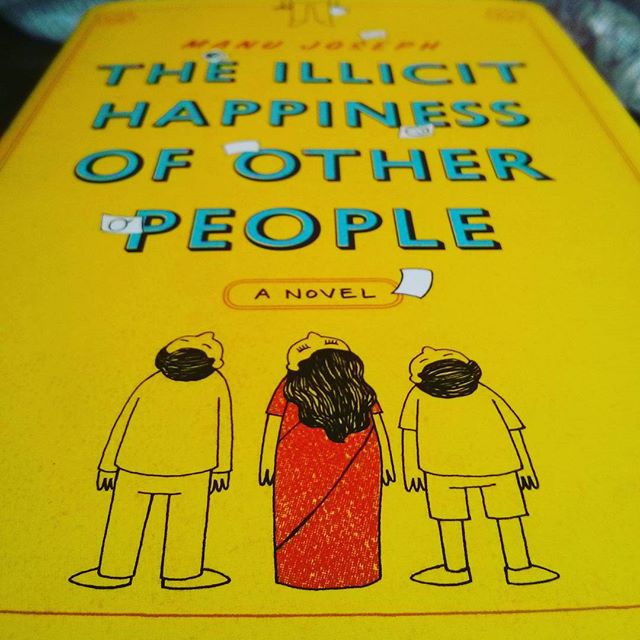Daya Pawar's #Baluta | #currentlyreading #amazing #translation by @mahimkajerry It's got me back to #reading in the #mornings!#indianliterature #books #caste
Author: fictionhead
Spicing It Up With Religion
Recently, my car witnessed a discussion about religious beliefs in a marriage. I am no expert because I am no longer religious and I doubt the boy I live with ever was.
Drink Tea And Empathy
Empathy, that’s the buzzword in my life these days. Without incriminating myself too much, let me just say that Empathy pays my bills.
Bear with me as I take you through empathy in action in my life. I like my mid-morning tea. Instead of getting off my chair and making it, I get into a consensus-building meeting where opinions fly about the sense of agency and comaraderie that tea-drinking provides. By the time we get into what brand of organic fairtrade local tea must be consumed, half a day is up. So we put those questions in a parking lot and decide to reconvene the meeting a month later because we need to be considerate about everyone’s schedules.
Meanwhile, over this month my productivity at work dips to 10% because
- tea fuels my empathy towards organisational goals and
- there is excitement in the team about this move to revolutionise tea-making.
Of course, I go home and power work through the evening.
A month later, when we reconvene, the better part of an hour is spent on what the parking lot questions were and if the agenda could be altered to include the burning question–‘Who shall be accountable for tea making and delivery?’. Just when we think Consensus has left the building, in the last fifteen minutes before lunch, the team agrees!
- Yes, tea should be made and
- Yes, someone should be accountable.
Could we have an action item and a timeline, please?
Someone, mostly the idiot who raised this issue (that would be me) gets ‘volunteered’ to draft a policy on what it looks like to consume tea as a team both empathetically and sustainably while forwarding the vision of our organisation in the spirit of bringing change, keeping in mind our resource constraints.
Two weeks later…
The draft gets circulated on email where everyone responds REPLY ALL of course, saying
- Thank you for awesome work!
- You are a genius!
- This is epic!
- Congrats on exceeding expectations!
- Success tastes sweet like ginger tea!
without actually having read the policy. This draft (=final) policy gets uploaded to the cloud where only the person who wrote it knows how to find it.
The next day, when mid-morning lethargy catches up with me,
- I sulk
- Distract the person closest to me
- and Facebook,
before a brainwave hits me. OMG, I have an idea!
I am going to boil some water, pour it into a mug with a ginger teabag and add a ton of sugar and milk!
But let me first email the team,
Sub: Empathy in Action Workshop–Revolutionising mid-morning tea making by enabling everyone to make their own tea!
Dear Team
As discussed in the last team meeting, I am passionate about revolutionising the tea-making culture in our office. I would like to thank everyone present for pushing me to think beyond our daily tea-drinking regimes and to consider the power of revolutionising the process sustainably in keeping with the spirit of change our org embodies.
To further our cause, I would like to invite you to a tea-making workshop to be conducted on 1 Apr, 2016. This is of course a full-day event where you will learn the nuances of our tea revolution and the history of colonial oppression through tea cultivation. This workshop will include but will not be limited to giving yourself permission to make your own tea! I request all of you to prioritise this activity and be present.
Within five minutes, a deluge of REPLY ALLs
1. Thank you for awesome work!
2. You are a genius!
3. This is epic!
4. Congrats on exceeding expectations!
5. Success tastes sweet like ginger tea!
And I get all of 2 sign ups for my workshop which gets moved to an improv meeting at the kitchen counter during tea break.
You know what happens next…life and this post!
Nice Guys Finish Last Because They Are Cheering You On
There are so many Women’s Day posts doing the rounds today. I know I’ll just be adding to the numbers. But I am going to do it anyway.
Julie & Julia–What I love about that movie are the regular husband characters who are super crazy nice. I would like to take this opportunity to talk about such regular men in our lives.
Being nice is a value I have come to regard highly. I don’t see many women giving nice, decent men the credit due to them. Young or old, tall or short, handsome or not, these are everyday men who treat you with respect, thanking you for offering food, lending a ear when you crib, holding the baby while you eat, driving around or waiting in peak traffic while you make a quick pit-stop at your tailor’s on commercial street, worrying about you when you are traveling in our unsafe country. They don’t have to do any of these things in our society. A self-indulgent asshole masquerading as a man is still perfectly normal. All women know this but I never hear of anyone sending up a prayer for our nice men.
My day job isn’t groundbreaking. But I have never worked with nice people and my team is brimming with nice people all the way to the top. And they are mostly men–nice men who listen to my challenges and in situations where they have no solutions to offer, crack a joke and laugh along. I don’t worry about semantics in mails I send my super boss, I don’t have to be tactful when asking for a raise and I definitely don’t have to think twice before disagreeing. I would go out of my way for them because I know they’ve got my back. And it’s a beautiful feeling. One that I cherish.
When you break up with nice men, here’s something to think about. Of course, it’s your decision and there is nothing I can do about it. But in my experience, relationships are not about common goals or personalities or interests. Relationships are about space. It’s about respecting each other’s space and then doing whatever the fuck you want with it. And only nice guys can give you that space. Only nice guys can see that you need to read or not talk or hang out or sleep in without judging you. That is to say, a nice guy will sit through a movie that you like but a person who shares your interest in movies need not be a nice guy. Nice guys learn to live with and love your craziness. And you need to respect that.
No one credits these nice guys. When the world throws tricky situations, stress and tragedies at you, if you have a decent man beside you, you can trust him to give you perspective and tell you that it’s all going to be alright. When it’s not your day in the sun, he will tell you that you are the best. When you get dramatic, he will be there with a Keep Calm sign. And that constancy cannot be replaced. Nice guys finish last. Ans that’s only because they were cheering you on!
Thank you to all the nice men in my life.
Flash Fiction: Mr Husband
Disclaimer: No husband was harmed in the making of this story. None of the thoughts in this story are derived from or directed at the you-know-which husband. He is hail and hearty and continues to be the only love of my life.
I sent this story to a contest and nothing happened. These are times when I am glad I have a blog where I can publish everything I write and not feel contested. In need for some much sought after validation. To the seven people who read my blog, let me know what you think of this story. It’s 300 words because it’s flash fiction (#whaaat)!
Mr Husband
Their anniversary was without fanfare. For 20 years, the only departure had been an elaborate dinner in place of their usual chapati and curry. This year on the menu was Khow Suey, a Burmese noodle soup.
Kitchen was her happy place where she cooked up the vegetables she grew. With a dozen condiments, Khow Suey was a labour of love for a dinner for two. You had to caramalise garlic and onions, chop herbs, roast peanuts, saute mushrooms and boil eggs.
She loved these laborious tasks. They kept her mind from racing. She had been married off at eighteen. He was a decent man, her husband. Soon, they were raising two children and by the time she turned 40, it was just the two of them again.
Who was she? A quiet married woman who talked to herself, holed up in her kitchen while her husband got lost in a world he entered through the newspaper? And what about him? A man with no complaints or surprises; content with his job, family and the drama the newspaper offered?
Their life was an ode to familiarity. Mornings, they went for a walk. She made breakfast while he got ready for work. Once he left, she cleaned up, took a bath, napped a little and tended to her garden. She would be busy cooking dinner when he got home. Their lives weren’t boring, she reasoned. Such was life.
Chopping mushrooms, she heard herself say, “That’s what I’ll do. I’ll grow some mushrooms, cook them up into a deadly curry and feed it to my dull old Mr. Husband. That should do him in, no?”
Her murderous plans where still on when the doorbell rang. She opened the door, took his lunch box and asked him about his day.
InstaReview from fiction_head
Books I’ve Read In 2015
In 2014 and the previous year, I set myself a book reading challenge of 25 books. I made it to 12 and 21 respectively. This year I decided to make my challenge achievable. Here are the results.
1. Eleanor & Park by Rainbow Rowell
2. Khasakinte Ithihasam by O.V. Vijayan
3. The Illicit Happiness of Other People by Manu Joseph
4. Serious Men by Manu Joseph
5. New York 1 Tel Aviv 0 by Shelly Oria
6. Cobalt Blue by Jerry Pinto
7. In a Forest A Deer by Ambai
8. Ravan and Eddie by Kiran Nagarkar
9. The Spare Room by Helen Garner
10. Fun Home: A Family Traginomic by Allison Bechdel
11. One Part Woman by Perumal Murugan
12. English August by Upamanyu Chatterjee
13. Delhi Noir by Hirsh Sawhney
14. Cult of Chaos by Shweta Taneja
15. Soulmates by Kanchana Ugbabe
I am in the process of putting together a 2016 reading list. Would love to get must-read suggestions from you. Leave a comment with your recommendations.
InstaReview from fiction_head
Book Review: Pain Of The Parallelogram And Other Distractions
“Ousep Chacko, according to Mariamma Chacko, is the kind of man who has to be killed at the end of a story”, begins Manu Joseph’s second novel, The Illicit Happiness of Other People (buy this book). Ousep, Mariamma and their son Thoma live in a limbo since the unexplained demise of their eldest son, 17-year-old Unni, three years ago. Ousep, a journalist and writer whose genius has stalled, is on a mission to decipher his son’s anarchist comic strips and solve the puzzle of his death. Ever-practical Mariamma, who runs the Chacko household mostly on faith and very little income, is in the habit of talking to the walls of her house and plotting to kill her husband. But she also knows that “Ousep Chacko is not a man who can be killed by oil. He does not eat much.” Meanwhile, Thoma, all of 12 years, “is distracted by the pain of the parallelogram, which is slanted forever”. In his fantasies, his beautiful neighbour, Mythili Subramaniam, asks him the two questions he knows the answers to: What does KGB stand for and what’s Pele’s real name?
Of Unni’s cartoon strips, “Enlightenment” is my favourite. In it, a saint meditating for ages, begins to glow in enlightenment until he wakes up and screams, “Shit, i am cartoon!”. The book is full of charming observations. Thoma Chacko learning to grow out of his deceased brother’s shadow is my favourite plot in the book. As the years go by, it’s dawning on Thoma that Unni was a prankster who had him believe things like, “Maths was about to get a lot easier…the home minister, who is responsible for happy homes, would soon pass a law changing the value of pi from 3.14159 to just 3, making it easier for all Indian children to calculate the area of a circle”. I can see my brother fooling me thus, if only he had such an imagination! His coming of age is a bitter-sweet moment that Thoma negotiates with courage and clarity, all by himself.
My main criticism of Manu Joseph’s debut, Serious Men, was its lack of admirable women characters. By contrast, this story does justice to its women characters. Mariamma Chacko is strong, decisive, vulnerable and wild in equal parts. The author’s craft shines through in the well-told relationship between Ousep and Mariamma. They take one another seriously but cannot stand each other mainly because of years of cohabiting. Joseph captures the delicate rope walk of their relationship with superlative finesse.
In most parts, this novel delves into the workings of the human mind rather beautifully. But at some point the details of mental illness become tiring. My theory is that 2012, when this book was published, was the year of books on mental illness of a family member. Another brilliant creation that supports my theory is Em and the Big Hoom by Jerry Pinto.
I highly recommend this book for a sense of what it was like growing up in the early nineties and some hilarious accounts on how our unstable lead regular lives.
InstaReview from fiction_head
Ousep, Mariamma and their son Thoma live in a limbo since the #death of Unni, their firstborn, 3yrs ago. As Ousep studies Unni's #cartoons to solve the #mystery of his death, Mariamma plots to kill Ousep. And all Thoma wants is to be in close proximity of their #beautiful neighbour Mythili. Love the charming observations and the admirably real #women #characters. At some point the details of the working of the #humanmind get tiring. Still #highlyrecommend for some #hilarious quips.Rating: 3.5/5Full review on www.fictionhead.in#indianauthor #illicithappinessofotherpeople #manujoseph #mentalillness #bookstagram #bookreview #booksofinstagram



